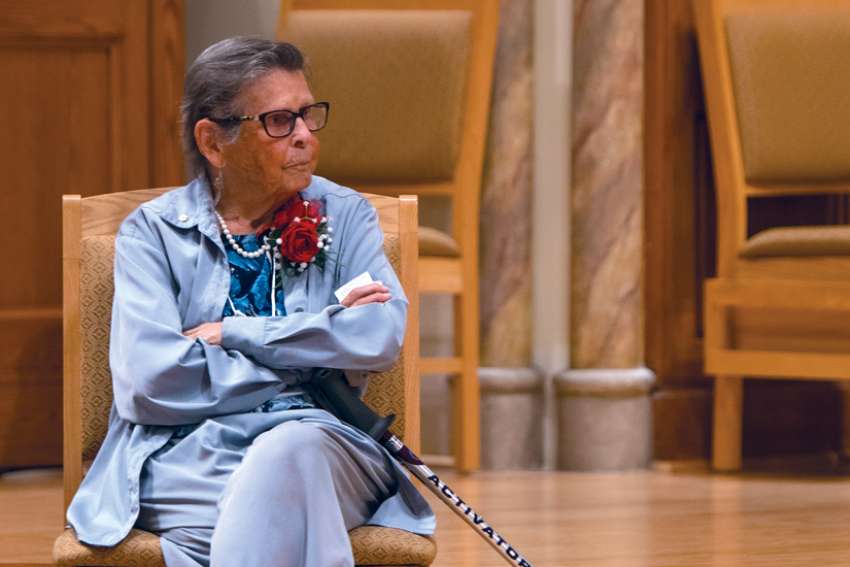When Our Lady of Lourdes parishioner Bertha Yetman approached Wilson with an idea for a book about her life and legacy, Wilson insisted the book could not be about her. She wanted a book that would advance causes she cares about — a book that would talk about faith and politics.
For the Sake of the Common Good: Essays in Honour of Lois Wilson makes a case for democracy, the rule of law and a political spirit that embraces compassion with essays by former Supreme Court Justice Louise Arbour, former Justice Minister Irwin Cotler, Romero House co-founder Mary Jo Leddy and former Minister of Foreign Affairs Lloyd Axworthy.
The essays begin with developments in ecumenical and interfaith relations, move from there into faith and public policy and culminate in essays about human rights.
“Human rights are absolutely central to the Gospel and have to be pursued unrelentingly,” Wilson told those gathered at Rosedale United Church for the book launch Sept. 9.
Wilson’s only concession to her 95 years are a pair of hiking sticks that propel her across the room. She still stands tall, even if she hovers somewhere under the five-foot mark.
Most Canadians remember Wilson as the independent Senator from Toronto who was in the headlines for questioning the wisdom of politicians and governments from 1998 to 2002. She has often proudly proclaimed that she voted with the Conservatives as many times as she did with the Liberals, even though she was appointed by Liberal Prime Minister Jean Chretien.
But her public life began as the first female moderator of the United Church of Canada from 1980 to 1982. She came to politics through ecumenism — trying to bring people together across denominational lines in Thunder Bay, Ont. She had been to a “Faith and Light” ecumenical gathering in Wisconsin in 1965 and was asked to see what could be done ecumenically among lay people north of the border. She had one Catholic friend. She asked that friend to gather 10 Catholic women in her living room.
This synodal and ecumenical gathering lived on past one meeting, resulting in Wilson being asked to a World Council of Churches conference on the laity in Geneva.
“It just blew my mind,” Wilson told The Catholic Register.
At that point she had no idea that her ecumenical commitment was naturally inseparable from politics. Today, she sees ecumenism as political in the best sense of the word.
“People of good will coming together, that’s ecumenical,” she said.
Wilson was there to help out when Leddy and Fr. Jack Costello founded Romero House. Three decades later, Costello is still voting for the Lois Wilson party.
“She has a cross-denominational interest in making sure that Christianity is engaged in the real world,” said the Jesuit. “Lois was always alive with interest in the Church being in the real world. Her faithfulness is really something.”
In a keynote address at the book launch, Cotler called Wilson someone “whose presence evokes the common good.”
The politics Wilson practised in the Senate, as alien as it has become to the fractious, polarized politics of today, is needed now more than ever, Cotler argued
“We are at an important historical inflection moment,” he said. “We are witnessing a global political pandemic, characterized by a resurgent global authoritarianism, the backsliding of democracies, assaults on human rights, including media freedom.”
Most of all, Wilson’s global politics of hope are the opposite of cynicism, opportunism and selfishness, said Leddy.
“Lois and Irwin have taught us so much about what it means to be useful — not flashy, not important, but useful,” she said. “It’s what happens when you start to build institutions, to write policy papers, to craft policies that make a difference.”


